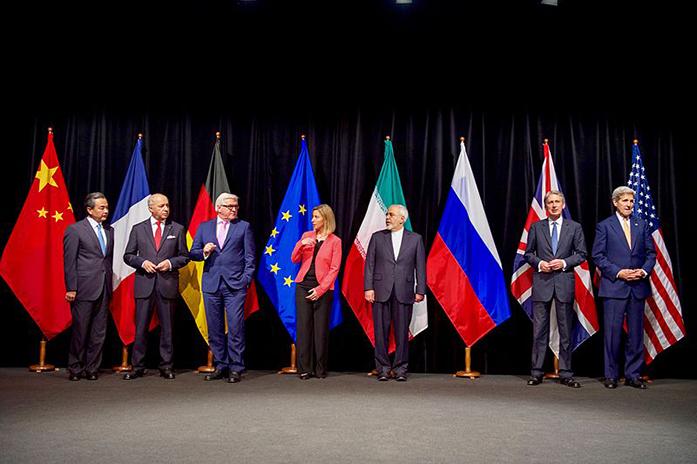Jack Dugan
[email protected]
On Jan. 16, two historic events took place. Four U.S. prisoners were released from Iranian custody coinciding with the automatic lifting of some economic sanctions against Iran. This release comes as a result of Iran’s cooperation concerning the ever-controversial and even more so monumental nuclear deal, which came about last summer after 20 months of negotiations between Iran and a group of six nations, headed by the United States.
The Obama administration has also been under searing scrutiny in the dealings with Iran, with opponents to the agreement typically being most vocal about the $100 billion in frozen Iranian assets. But, with this prisoner exchange, the focus has now shifted to the lack of transparency involved with the prisoner negotiation.
The New York Post, in reference to the aforementioned $100 billion in unfrozen assets that were released the same day as the prisoners, states “Team Obama timed this news to take the sting out of a wildly unpopular move — playing politics with a hostage release” and calling the deal down right “ugly.”
Though, perhaps always in contention with the New York Post, the New York Times goes to state that the $100 billion of “sanctions relief” and the prisoner exchange as “two giant leaps forward” for relations between the United States and Iran.
The Post’s perception of these deals is telling of a problematic worldview, shared by a plethora of right-leaning Americans, that perpetuates the idea of U.S. hegemony, a very real hegemony that works to subjugate and dominate non-Western nations.
Sanctions, in a global market and ever increasingly globalized world, are a tool of economic powerhouses to push smaller economies into behaving in a way that benefits those imposing those sanctions.
According to the World Bank, “If all sanctions are [to] be lifted by the beginning of the 2016 Iranian calendar year (March-June 2016), real GDP should rise to 5.8 percent and 6.7 percent in 2016 and 2017, respectively, as oil production reaches 3.6 and 4.2 million barrels per day”
This is monumental to a strained Iranian economy and even more so to the estimated 78.5 million Iranians, who were subjected to a dismal 11.4 percent unemployment rate back in 2014, arguably as a result of the hefty U.N. sanctions that are in the process of being lifted.
This is not to say the Iranian sanctions were necessarily unjust (Iranian administrations were necessarily justified in their pursuit of nuclear arms) nor that the end result of imposing the sanctions was a bad thing (my opinion will forever stand that the fewer nuclear arms there are in the world, the better off humanity will be). But it’s important to consider the implications that proposed sanctions have on the presumably innocent populace of these nations.
Take the particularly tragic result of the U.S. sanctions on Iraq in the ’90s, which are considered responsible for the death of 500,000 Iraqi children due to malnutrition, lack of clean water, and medicine. It was considered one of the greatest crimes of the decade, according to a 2003 Times article.
Sanctions tremble along a thin, fine line. In part, absolutely effective, because we now have four Americans on their way home and one fewer nuclear power. Though we have to consider and account for those most severely affected by economic sanctions. When economies collapse, people don’t eat.
At the end of the day, the deal Obama struck with Iran leaves fewer people incarcerated, fewer people subjected to the malaise of economic sanctions, and fewer nuclear arms. There is nothing ugly about that.










